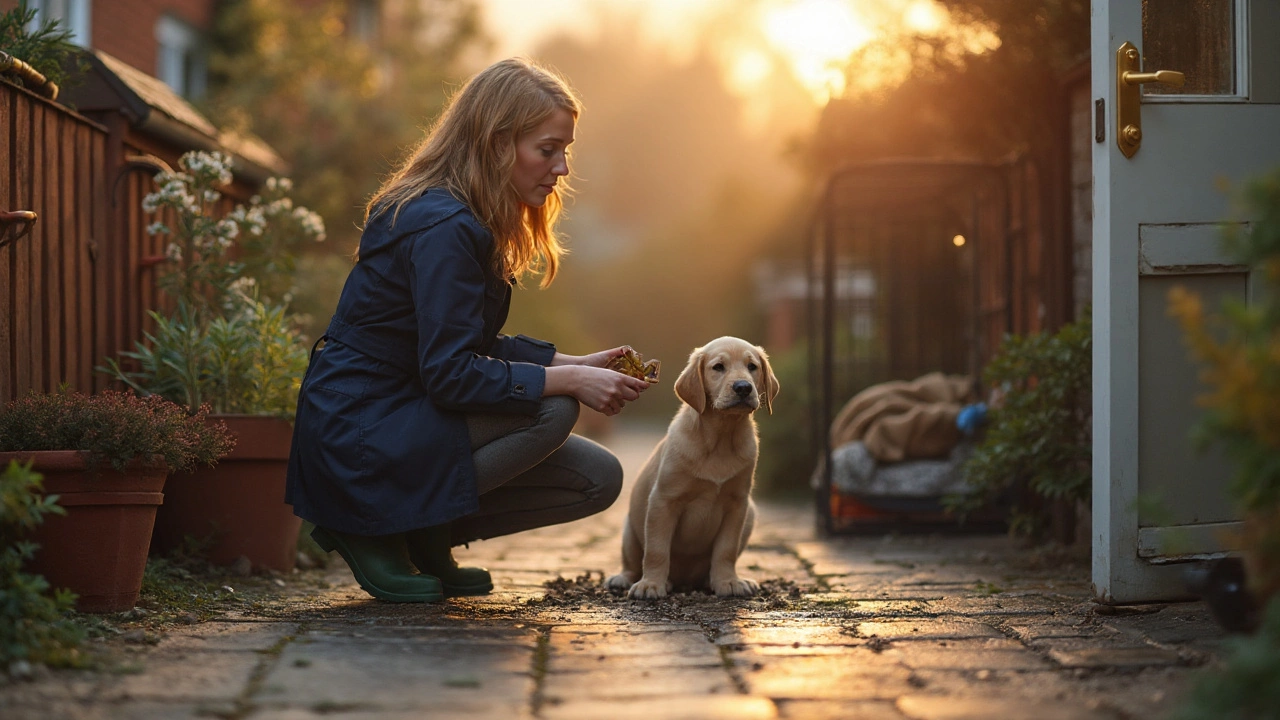Puppy Toilet Training Age: Your Quick Guide
If you’ve just brought home a wiggly pup, the biggest question on your mind is probably, “When do I start toilet training?” The answer isn’t a single number – it depends on breed, size, and each dog’s development. Most puppies are ready between 8 and 12 weeks, but you’ll see readiness signs a little earlier or later. Knowing those cues saves you time, frustration, and a lot of mess.
Signs Your Puppy Is Ready
Watch for these three tell‑tale signs. First, your pup will start waking up from naps and heading straight to the door or a designated spot. Second, they’ll give you a clear cue – a whine, a sniff‑and‑circle routine, or even a little bark. Third, they’ll stay dry for longer stretches, usually an hour or so after eating or drinking. When you notice these behaviors, it’s a green light to begin structured training.
Step‑by‑Step Toilet Training Plan
1. Pick a Spot: Choose a consistent outdoor area or a puppy pad. The scent helps your dog associate the place with bathroom time.
2. Set a Schedule: Puppies need to go after waking, eating, drinking, and play sessions. Aim for every 2–3 hours in the first weeks.
3. Use a Cue Word: Say a simple phrase like “Go potty” right as they start to eliminate. Repeat it every time; they’ll link the word to the action.
4. Reward Promptly: As soon as they finish, give a treat, praise, or a quick play burst. Immediate reinforcement is key.
5. Supervise Closely: Keep your pup in sight or on a leash inside. If you catch them about to go indoors, gently interrupt, bring them to the spot, and use the cue word.
6. Handle Accidents Calmly: Don’t scold. Clean the area with an enzymatic cleaner to erase the scent. Over‑reacting confuses your pup and can make them nervous about going.
7. Gradual Independence: As they get the hang of it, extend the time between bathroom trips. By 4‑5 months most dogs can hold it for 4–5 hours.
Remember, consistency beats intensity. Stick to the routine, keep rewards positive, and watch for those readiness cues. Most puppies catch on quickly when you’re clear and patient. If setbacks happen, go back a step and reinforce the basics.
By the time your puppy reaches the 12‑week mark, you should have a solid foundation. From there, it’s all about fine‑tuning the schedule and giving them freedom to go when they need it. With these simple steps, you’ll turn housebreaking from a nightmare into a routine you both enjoy.

